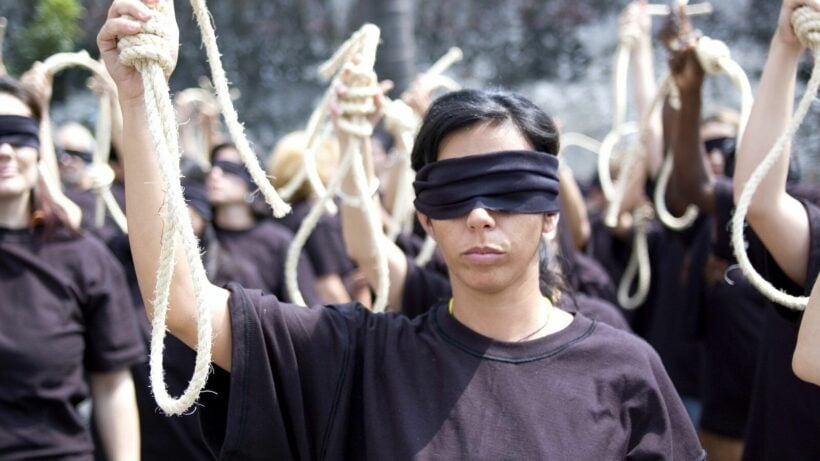Malaysia’s Cabinet agrees to abolish mandatory death penalty

Malaysia’s Cabinet voted in favour of abolishing the mandatory death penalty. According to proposed changes to the law announced on Friday, the death penalty would not be abolished completely, but Malaysian judges would no longer be forced to issue the mandatory death penalty for 11 types of serious crimes, including drug offences, kidnapping, murder and terrorism. Malaysia’s parliament will still have to pass amendments to several laws to make the Cabinet’s proposed changes a reality.
If the amendments are passed, it is not yet clear whether the changes would apply to prior sentences or not. Currently, there are 1,341 people on death row in Malaysia. More than two thirds of those are on death row for drug offences, according to Amnesty International.
Currently, Malaysian judges are forced to hand out death sentences for 11 criminal offences, no matter the circumstances. The changes to the law would give judges the discretion to give the death penalty OR a substitute sentence for the 11 types of crimes on a case-by-case basis.
Malaysian Prime Minister Ismail Sabri explained why the death penalty is sometimes, but isn’t always, suitable…
“If there are two options (of sentences), and if the offender is found to be a hardcore drug trafficker to the extent of causing hundreds of thousands of people to die (due to drugs), he could be sentenced to death and allowed to be sent to the gallows.”
“Sometimes, the case involves an 18-year-old. The judge may find him ‘trapped’ as drugs were found in his bag but he could not prove they belonged to somebody else, and the court had to send him to the gallows even though the judge felt the accused was a young man who should be given a second chance to change.”
In a meeting on Wednesday, the Cabinet agreed to further scrutinise proposed substitute sentences for 11 offences carrying the mandatory death penalty, one offence under Act 234, Section 39B of the Dangerous Drugs Act 1952 and 22 other offences carrying the death penalty at the discretion of the court.
Deputy Asia Director for Human Rights Watch Phil Robertson says the Cabinet’s decision is a step in the right direction, but are wary not to get their hopes up, because such changes to the law have been suggested many times in the past in Malaysia but never actualised…
“Before everyone starts cheering, we need to see Malaysia pass the actual legislative amendments to put this pledge into effect.” There has been a trend of Malaysian governments “promising much on human rights but ultimately delivering very little.”
In 2018, the Pakatan Harapan government said they would abolish the death penalty, but backtracked the year after.
“The Malaysian government loves to float trial balloons about human rights initiatives because it knows the international community has a short attention span. But the reality is often more complicated,” added Robertson.
The Cabinet’s decision comes a month after Singapore executed a Malaysian, said to be “mentally disabled,” for smuggling 1.5 ounces of heroin.
SOURCE: The Straits Times
Latest Thailand News
Follow The Thaiger on Google News:
































